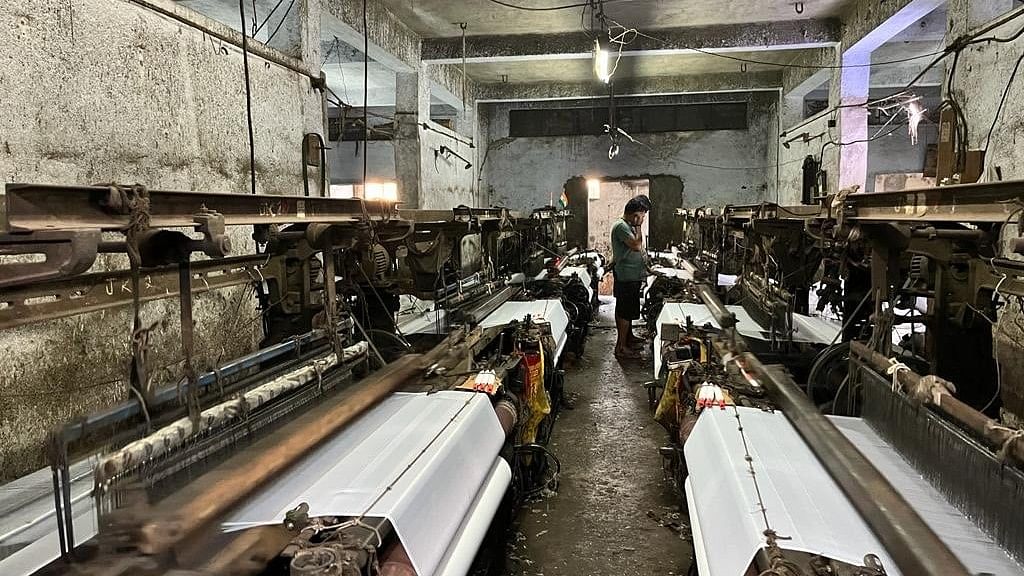
In today’s increasingly digital financial landscape, MSMEs must establish a strong digital footprint.
Credit: Special Arrangement.
Much has been said and written about the criticality of micro, small and medium enterprises in India’s economic structure. Not only do they employ 111 million people, they also account for 48 per cent of the country’s exports. Yet these businesses find themselves stone-walled when it comes to accessing credit.
Recent reports reveal that the total credit demand for MSMEs stands at ₹68.2 lakh crore, while the existing financial ecosystem addresses only ₹24.06 lakh crore of this demand, leaving a considerable shortfall of nearly ₹45 lakh crore.
Addressing this gap is vital for unlocking the sector’s full potential and further empowering MSMEs to contribute to India’s development. These formal credits are critical for setting up, expanding operations, introducing new products, or addressing cash flow challenges in their business.
How do they get around this issue? For that they need to attend to five aspects, all of which ensure transparency in their financial dealings and profile.
Digital Financial Data
In today’s increasingly digital financial landscape, MSMEs must establish a strong digital footprint. Engaging in digital transactions—such as NEFT, RTGS, and UPI—demonstrates financial responsibility. Also avoiding bounced transactions helps. Lenders are increasingly considering the digital transaction history of businesses when evaluating loan applications. A clear and consistent flow of digital payments not only enhances transparency but also strengthens the lender’s confidence in the business’s stability and ability to manage cash flow effectively.
Credit Management
MSMEs often require multiple sources of funding to manage business operations, but over-leveraging can be detrimental to both their credit score and loan approval chances. It’s essential to open and manage only those credit lines that the business can comfortably handle. Responsible credit management includes regularly reviewing outstanding credit, assessing repayment capabilities, and ensuring that financial commitments are not overextended. This will build trust in the entrepreneur’s ability to manage obligations.
A good credit score
One of the most critical factors in securing a business loan is credit score. A high credit score is a reflection of the business’s financial health and its ability to manage loans responsibly. MSMEs must avoid frequent loan applications, as this can signal financial instability. Regularly servicing loans creates a positive repayment history, strengthening the overall credit profile.
Monitoring records
Regular monitoring enables identifying discrepancies or errors that might lower the credit score. Any inaccuracies spotted must be raised with the lender immediately and resolved as soon as possible. Credit monitoring also helps assess areas of improvement in financial management practices.
Digital loan applications
With the rise of fintech innovations, digital loan applications have gained traction due to their ease, transparency, and speed. MSMEs should take full advantage of digital lending platforms and ecosystem enablers like Account Aggregators, GST filing, e-KYC, and DigiLocker. These platforms allow secure, real-time sharing of critical business data directly from the source, which minimises fraud risks and provides lenders with authentic financial information. By filing GST returns on time, maintaining updated e-KYC records, and leveraging DigiLocker for document storage, MSMEs can streamline the loan application process. Digital platforms often result in quicker approvals, more flexible loan options, and transparency in interest rates and repayment structures. Lenders view MSMEs active in these digital ecosystems as better organised, trustworthy, and ready for growth.
Securing formal credit is essential for MSMEs to grow, innovate, and tackle operational challenges. In today’s fast-evolving financial ecosystem, demonstrating transparency, financial discipline, and preparedness will not only help MSMEs access much-needed funds but also position them as credible and reliable partners for lenders.
(The writer is MD & CEO of NeoGrowth Credit)